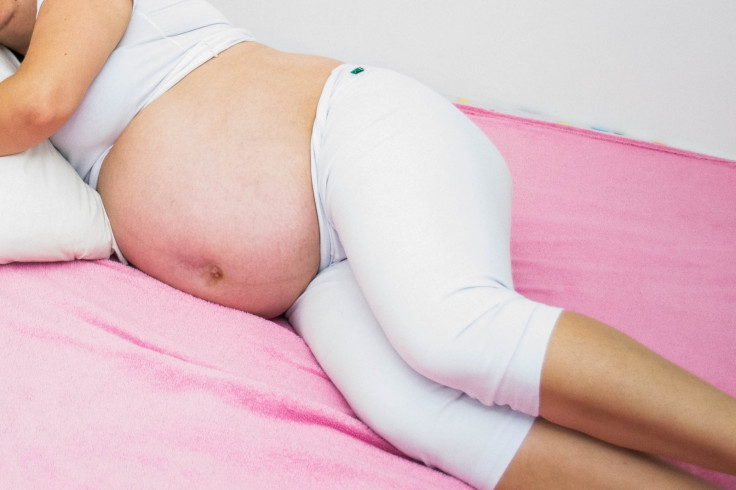What is lightning crotch, the painful condition that affects pregnant women?
Lightning crotch can occur when a women is in third trimester.

In recent years, the taboo surrounding pregnant bodies has fallen away as bloggers such as Constance Hall air their brutally honest views about pregnancy and labour online.
Among the nasty surprises of prenancy that women are more open to speaking about is "lightning crotch". It is a topic that several parenting websites have discussed over the past few days and one that has been a growing search term on Google in recent years.
It earns its name from the sharp, shooting pain women feel in their vulval and vaginal area during the third trimester. The sensation is sometimes known as "dropping" or "lightening" as the baby settles lower in the pelvis towards the end of the pregnancy.
"It can take your breath away and be quite uncomfortable," Linda Bryceland, head of midwifery at Private Midwives, told IBTimes UK.
What causes it?
As the baby grows, it can put pressure on the nerves in the pelvic area. The feeling is quite normal, according to Bryceland.
"When baby changes position the pain eases off. Occasionally, it is caused by a stretching of your ligaments that hold your uterus in place," she said.
"Sometimes the pains can signify that baby is moving lower into your pelvis ready for birth. This is fabulous news if you are at term but if you are less than 37 weeks pregnant you may want to get checked out by your midwife or doctor."
In rare cases, the pain could be a sign that something is wrong, warned Bryceland. "If you have any other symptoms such as passing urine more frequently, discomfort when you pee, change in vaginal discharge, feeling unwell or leaking any fluid from your vagina then you should see your midwife or a doctor."
Can it be treated?
Byrceland suggested techniques to prevent lightning crotch occurring in the first place. "Keeping active during pregnancy is a huge help," she said. "Pregnancy yoga can be particularly beneficial. Wearing supportive clothing and underwear will help a little too."
A magnesium deficiency, which is common during pregnancy, can make the pain more intense. Magnesium levels can be topped up with wholegrain foods, nuts and green leafy vegetables.
"If the pain is due to baby's position, then changing your position will also encourage baby to move," said Bryceland. "Try kneeling on your hands and knees with your shoulders lower than your pelvis and slowly rocking or rotating your pelvis. This will encourage baby to change position.
"You may also want to try lying down on the opposite side to the pain – so if the pain is more on the right, lie on the left for a few minutes."
Women who are struck by lightning crotch while they are out and about are advised to walk up stairs if possible.
"This rhythmical hip movement can help baby get in to a slightly different position and can be just enough to get them off that nerve," Bryceland explained.






















